The Greta Syndrome: How a Swedish girl became a world-wide climate phenomenon – and why she is making some people absolutely furious

Greta Thunberg has become the Joan d'Arc for climate activism. But how did she manage to do that when we have known for decades that greenhouse gas emissions heat up our planet? (Photo: Shutterstock)
Greta Thunberg has become the Joan of Arc of climate action. Millions idolize her, while others are downright enraged by her. But how did a 16-year-old girl have this effect? And how did she – and not researchers – succeed in making global warming and other climate challenges the hot topics of our time? CBS WIRE explores the Greta Thunberg effect.
Two braids, a yellow raincoat and a cardboard sign displaying the words ‘Skolstrejk för klimatet’.
Without even mentioning her name, I’m sure everyone knows who I’m describing. This decade’s number one symbol for climate action, Greta Thunberg.
She has prompted millions of people to take to the streets in the name of the planet, she has conquered platforms in major fora such as the UN, been nominated for the Nobel Peace Prize, and dispelled any doubt about whether climate changes are happening. All at the age of 16, and in the space of only one year and three months.
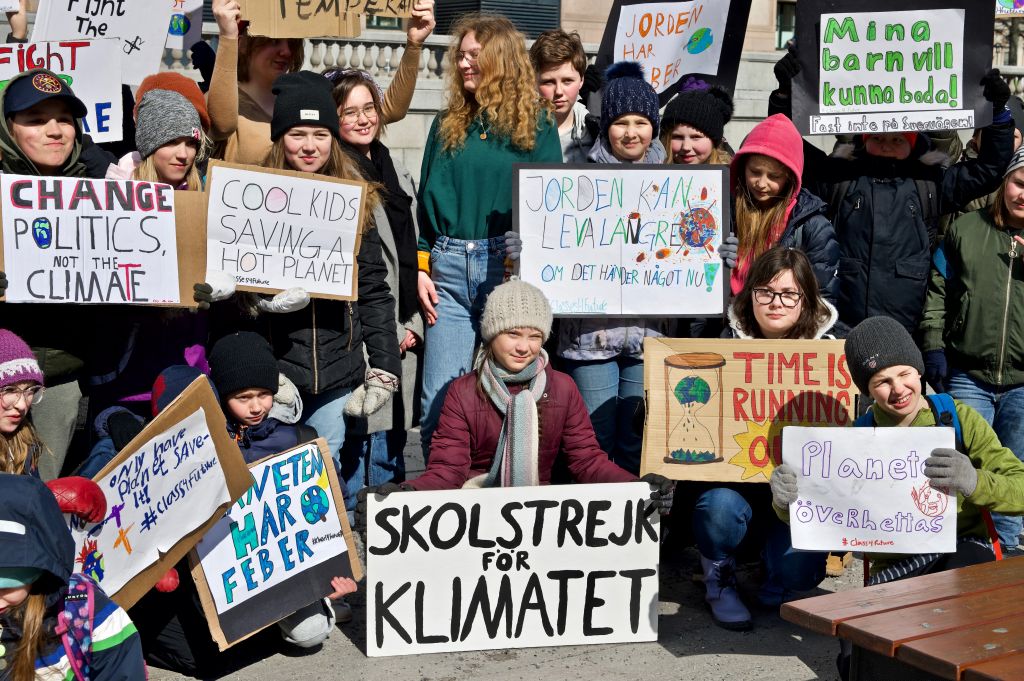
‘Skolstrejk för klimatet’. Greta Thunberg’s handwriting from her famous cardboard sign has been turned into a downloadable font for Office Word. (Photo: Shutterstock)
I have talked to four CBS researchers about what I have dubbed the Greta effect. I want to understand the Greta Thunberg phenomenon a bit better and find out why some grownups react to her like bullies in a schoolyard. I also want to know why she has succeeded in focusing everyone’s attention on climate change where researchers have failed, and ultimately, whether researchers can learn from her or use her popularity in any way.
But let’s begin by figuring out who she is – other than a Swedish schoolgirl on a mission. Because according to Anna-Bertha Heeris Christensen, PhD Fellow at the Department of Marketing at CBS, she has a lot in common with Martin Luther King.
“Greta Thunberg is not an influencer, she is more of an opinion leader like Martin Luther King, for example. And the mechanisms behind why we follow her are not much different to those that made people follow Martin Luther King,” says Anna-Bertha Heeris Christensen, whose field of research includes influencer marketing.
She continues:
“Greta Thunberg is the voice of the people. She appears genuine, as we don’t associate her with those normally in power. Furthermore, she makes what can seem very vague, very concrete, not only by her simple appearance, but also because she speaks to our feelings. And that is something we can understand. It’s much easier to understand Greta Thunberg than to read the Paris Agreement.”
According to Emil Husted, Assistant Professor at the Department of Management, Politics and Philosophy, Greta Thunberg can also be described as an ‘empty signifier’. Because although most of us associate Greta Thunberg with climate activism, she can be associated with many issues, which makes choosing to be on her side easy.
“Being an empty signifier, and that’s not a bad thing, means a lot of people can see themselves as being represented by her. She becomes a mirror of some sort. Whether it’s for the climate, a battle between generations, or democratization, she can represent them all,” he says.
Are you on team Greta?
As a climate change activist, Greta Thunberg has been tremendously successful at engaging members of the younger generation. Since she began striking outside the Swedish Parliament in Stockholm in the late summer of 2018, aged just 15, schoolchildren have been following her lead, holding Fridays for Future strikes all over the globe.
Greta Thunberg and the younger generation’s main argument for striking is that going to school makes no sense if the future will be ruined anyway by nations, governments, corporations and people who care little about saving the planet.
If Greta Thunberg was in my class, she would get top marks,
Maria Figueroa, Associate Professor
This rhetoric, of course, creates an “us” and a “them”. And if you are “them”, you would either want to become a part of “us” or draw the line somewhere else. This has left Greta Thunberg with a division of primarily white men opposing, mocking and bullying her in the online schoolyard. Some have called her a “hysterical teenager, who needs to be cared for”, a “mentally-ill Swedish child”, and a “millenarian weirdo”, while others have linked her activism to “medieval witchcraft” and wondered “if Greta needs spanking or a psychological intervention”. Yet others have been blithering on because she is not “sexy” enough.
Emil Husted has some suggestions as to why some people react like this, and explains how he was once one of “them” – people wanting business-as-usual and climate skeptics – and decided to earn a seat among “us” – the climate activists and pro-Gretas.
“Greta Thunberg makes a clear distinction between “us” and “them”, and by doing so, she creates a common image of an enemy – passive adults. So, if you happen to be exactly that you become the antagonist and end up on the wrong side of the story. And the potential reactions are either to become a part of the story or change it,” he says.
Emil Husted was disconcerted to find himself a ‘villain’ in Greta Thunberg’s story. As a white, grown-up man, he wasn’t exactly a natural part of Greta Thunberg’s project and, after reflecting on what he would tell his children when, at some point, they ask what he did to prevent climate change from threatening our existence, he decided to take action and become one of “us”.
Together with two other university teachers, Emil Husted wrote a feature article and recommended rewriting the University Act’s preamble to contain an explicit focus on the climate and biodiversity crises. In total, 558 researchers and university teachers signed the four-bullet proposal, which was sent to the Minister for Higher Education and Science, Ane Halsboe-Jørgensen.
“I did something, but others challenge her claims and push boundaries, and they can do so by smearing her name and the project she stands for,” he says.
“If Greta were my student, I would give her top marks”
So far, so good. Whether you are on the team working for the ‘Greta good’ or not, all of the four researchers I have talked to agree that Greta Thunberg has definitely changed how we talk about climate challenges and made it a hard topic to ignore.
However, researchers have known for decades that if we continue consuming at the same pace without finding renewable and carbon-neutral alternatives to fossil fuels, temperatures are likely to only keep climbing, which would bring many negative consequences such as melting ice caps, severe droughts and heavy cloud bursts, which can cause flooding.
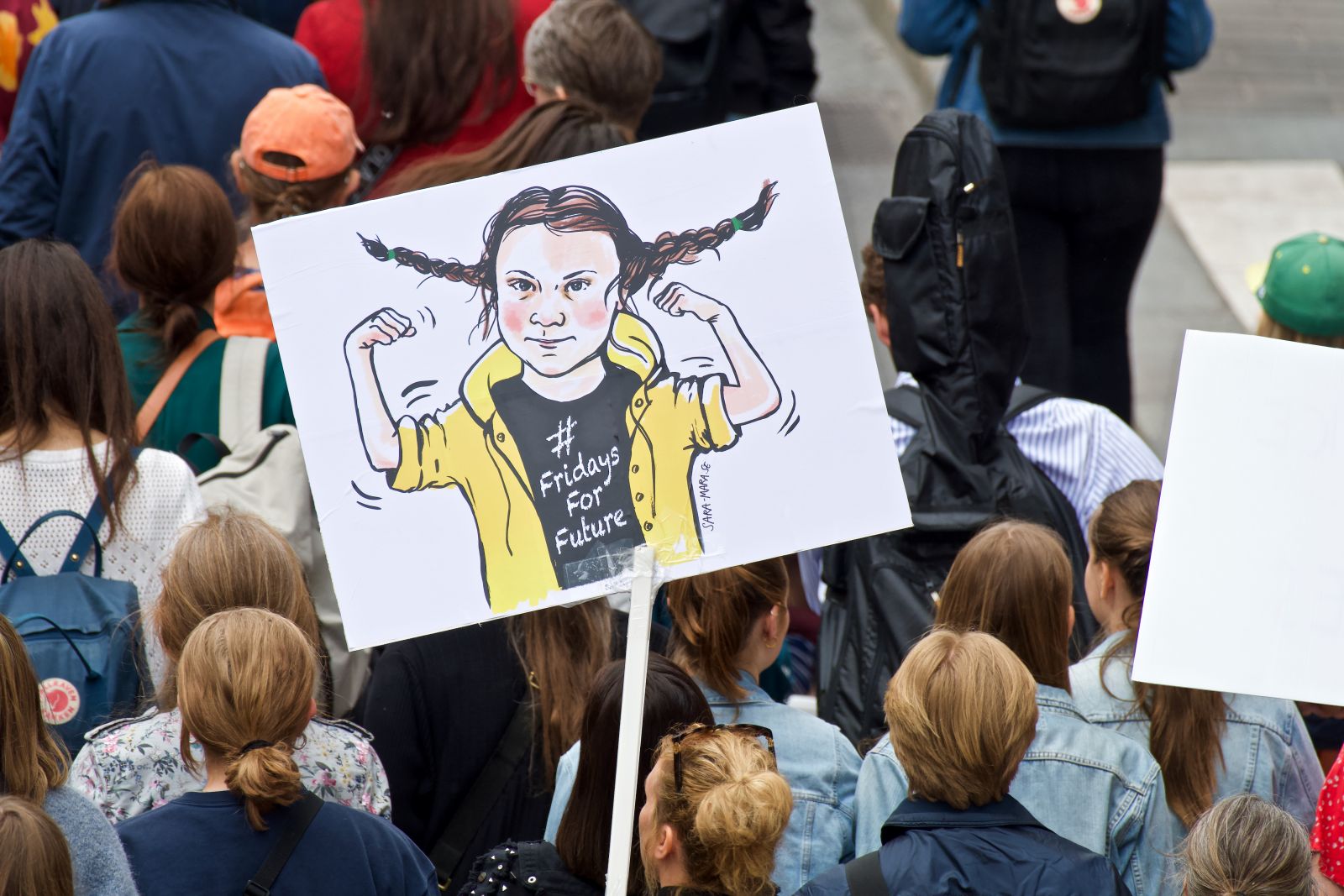
Actually, in 1897, a Swedish physician, Svante Arrhenius (1859 – 1927), predicted that temperatures would rise due to increasing emissions of carbon dioxide. But at the time, relatively few people seemed interested in his results, according to Videnskab.dk .
And the evidence for increasing temperatures was as strong around the 1940s as it was in the 2000s, according to the same article.
So back then, why didn’t politicians and heads of state get the memo? Why did it take a 16-year-old Swedish girl climbing onto the world stage and saying “How dare you?” to make everyone at least talk about the issues and show some sort of commitment to fixing the problems?
If you ask Maria Figueroa, Associate Professor at the Department of Management, Society and Communication at CBS, Greta Thunberg has a clear advantage – she can speak more directly. And so far, she has done so without misinterpreting the science.
“She makes climate science more accessible. She has clearly read it and she communicates it in digestible bites, and she does it without saying anything faulty or far from the current scientific understanding. If she was in my class, she would get top marks,” says Maria Figueroa, who is a contributing author to the IPCC reports that prepare the comprehensive assessment studies about knowledge on climate change, its causes, potential impacts and response options. Reports from where Greta Thunberg gets her knowledge.
As researchers, we have to be critical towards anything, including the phenomenon that is Greta Thunberg
Steen Vallentin
She continues:
“Greta can criticize world leaders for their passivity and for being complicit very directly. She can say, “How dare you? You have stolen my dreams!” She can be very honest and she deserves a compelling answer. As a researcher, you can’t do that. We have to present the trends and discuss uncertainties and the attributes to causality. And you can’t mobilize people in that way.”
So, perhaps if researchers were better at bringing their feelings into play, it would be easier for them to attract the attention of the public and politicians, reflects Emil Husted.
“If you want to change something politically, people should be able to identify themselves with the project. And Greta Thunberg is skilled at that. So, if researchers want to do the same, I see two solutions. Either members of the public start listening to them and reading scientific papers, or researchers should become better at communicating their messages. And I don’t think the first option will happen just like that,” he says.
Making sustainability an undeniable issue
Greta Thunberg was one reason why Emil Husted proposed rewriting the University Act. So, can her popularity be useful to researchers in any way? Either for research or as a way of pushing important results out there?
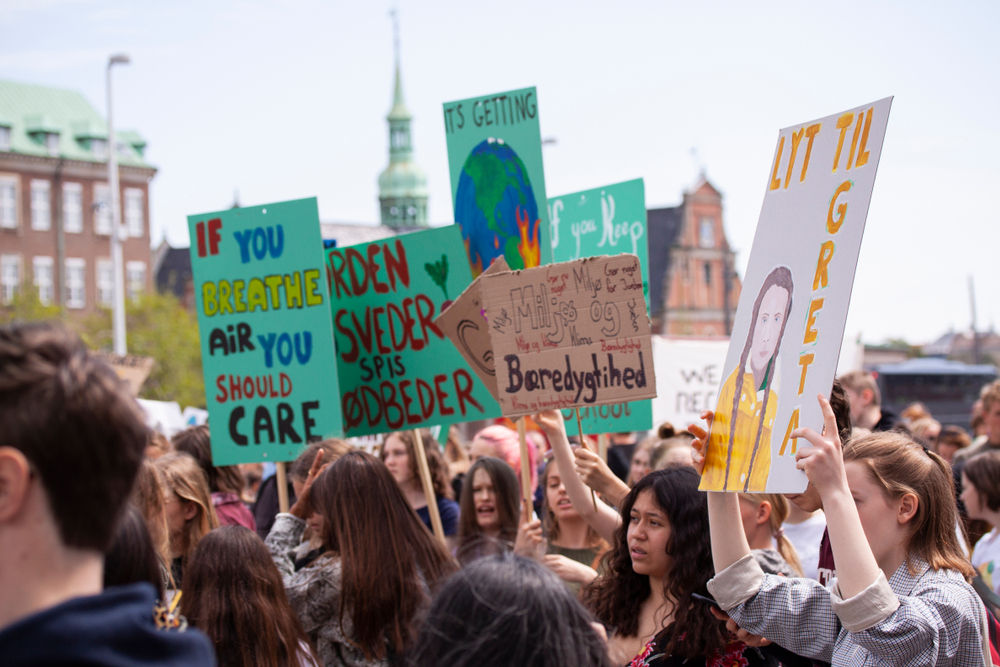
I asked Steen Vallentin, Associate Professor at the Department of Management, Society and Communication and Academic Co-Director of CBS Sustainability, these questions. And to him, what Greta Thunberg stands for is positive, but it’s not a direct influence on his research.
“Greta is not setting the agenda for sustainability research, as far as I’m concerned. She’s a schoolgirl and activist channeling societal, particularly young people’s, anxieties about climate change, the natural environment and unsustainable developmental tendencies. As researchers, we have to be critical towards anything, including the phenomenon that is Greta Thunberg,” he says.
Steen Vallentin first and foremost sees Greta Thunberg as “an empirical phenomenon” that is interesting to investigate. However, to him, it’s clear that she has had a part to play in making sustainability a theme of interest for business leaders, who turn to researchers for advice and knowledge.
“She has certainly played, and continues to play, a significant role in making sure that sustainability is an undeniable issue for business leaders to address and act on. At the CBS Sustainability centre we experience rising demand for knowledge and inputs about sustainability from business and trade- and professional organizations. This has to do with the proliferation of the UN Sustainable Development Goals – and it has to do with the international movement that Greta is spearheading,” he says.
“If you ignore Greta – you ignore the people”
Maria Figueroa thanks Greta Thunberg for providing the backdrop for her to really push this agenda, especially in the classroom, where Maria feels the real battle is being waged. Because to Maria, it’s important that her students are equipped with the right knowledge to cope in a world that must become more sustainable.
“We can’t keep teaching these short-term economic models. We need to look at the big picture here and challenge how and what we teach our students. So, I think the real battle is in the classroom and concerns making electives within these topics mandatory, because basically, education is essential for the green transformation. If we want a better world, we need better minds,” she says.

According to CBS researchers, Greta Thunberg has undoubtedly managed to make sustainability an undeniable issue for business leaders as well as politicians. (Photo: Shutterstock)
If you ask Emil Husted, there’s a chance that Greta Thunberg will have a longer-term impact on the general self-understanding of the role of researchers. He explains that most researchers see themselves as people with no agenda who deliver facts that someone else should act upon. But that’s slowly changing.
“Researchers like Eske Willerslev and Svend Brinkmann are public intellectuals who speak their minds about various topics. They are not afraid of mixing science and politics. The same was the case during the student uprisings in 1968 when researchers walked the streets speaking their minds,” he says.
No matter what, everyone seems to know who climate activist Greta Thunberg is, and everyone surely has an opinion about her. And that is the key to her success.
“Her voice has become so loud that politicians can’t ignore her. If they ignore her, they ignore the people,” says Anna-Bertha Heeris Christensen.



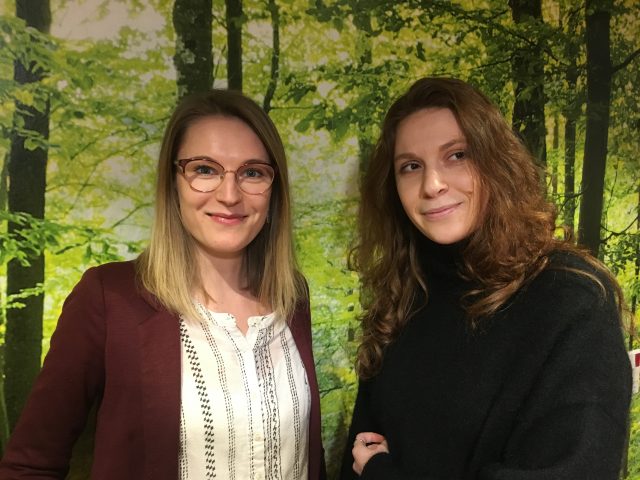
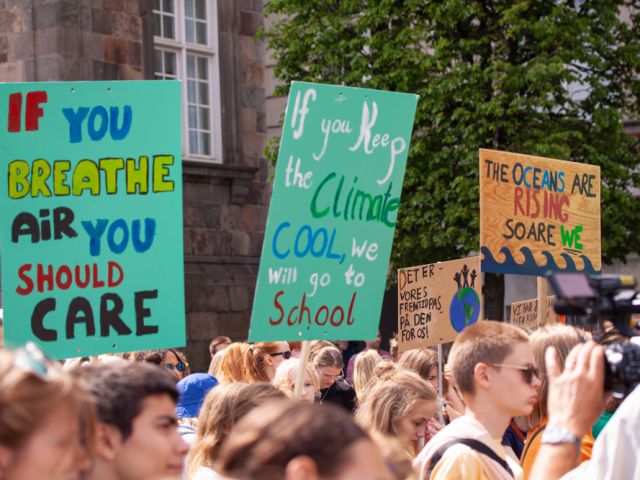



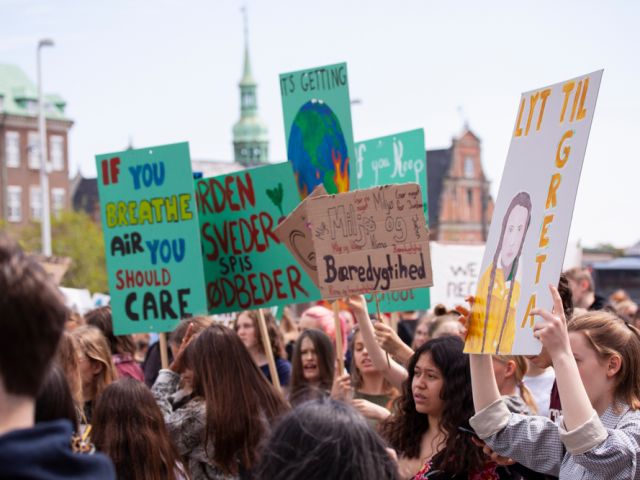





























































































































Comments